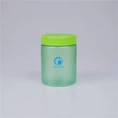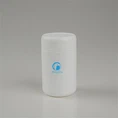When people discuss plastic safety, Bisphenol A (BPA) often comes up. BPA is a chemical used to make certain plastics and resins, such as those found in food containers, water bottles, and the inner lining of metal cans. While it has been widely used for decades, concerns about its potential impact on human health have grown in recent years.
What Is BPA?
BPA is an industrial chemical that helps make plastics stronger and more durable. It is commonly found in polycarbonate plastics and epoxy resins. Because these materials are lightweight and resistant to damage, they are widely used in packaging, storage, and household products.
The problem is that BPA can leach into food and beverages, especially when containers are heated, scratched, or exposed to acidic liquids. This raises concerns about long-term exposure in humans.
Potential Health Risks of BPA
Research suggests that BPA may act as an endocrine disruptor-a substance that interferes with the body's hormone system. Although studies are still ongoing, some potential health effects linked to BPA exposure include:
Hormonal imbalance
BPA can mimic estrogen, a natural hormone, which may disrupt normal hormone regulation in both men and women.
Reproductive issues
Some studies have connected BPA exposure to reduced fertility, altered sperm quality, and early puberty in children.
Metabolic concerns
There is evidence suggesting a link between BPA and obesity, insulin resistance, and an increased risk of type 2 diabetes.
Cardiovascular effects
Research has associated BPA exposure with high blood pressure and other heart-related issues.
Developmental risks
Infants and young children are considered more vulnerable, as BPA exposure during critical growth stages may affect brain and behavioral development.
How to Reduce BPA Exposure
Although it's nearly impossible to avoid BPA completely, there are practical steps you can take to lower your risk:
Choose BPA-free products: Many manufacturers now label bottles, containers, and baby products as "BPA-free."
Avoid heating plastic: Do not microwave or pour hot liquids into plastic containers that may contain BPA.
Use alternatives: Opt for glass, stainless steel, or HDPE/PET plastics, which are considered safer.
Check recycling codes: Plastics marked with recycling codes 3 (PVC) or 7 (other) may contain BPA.
















